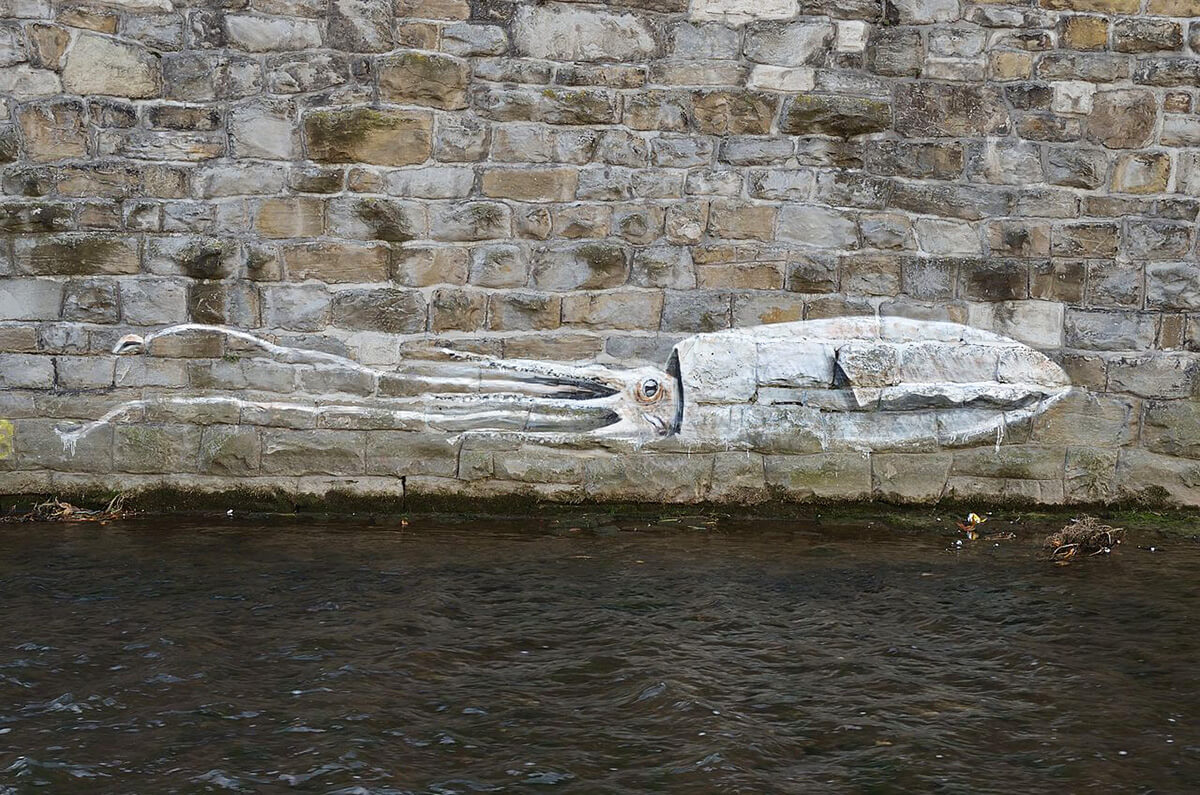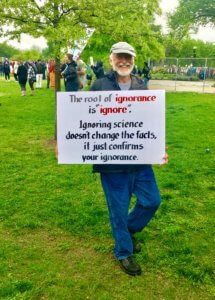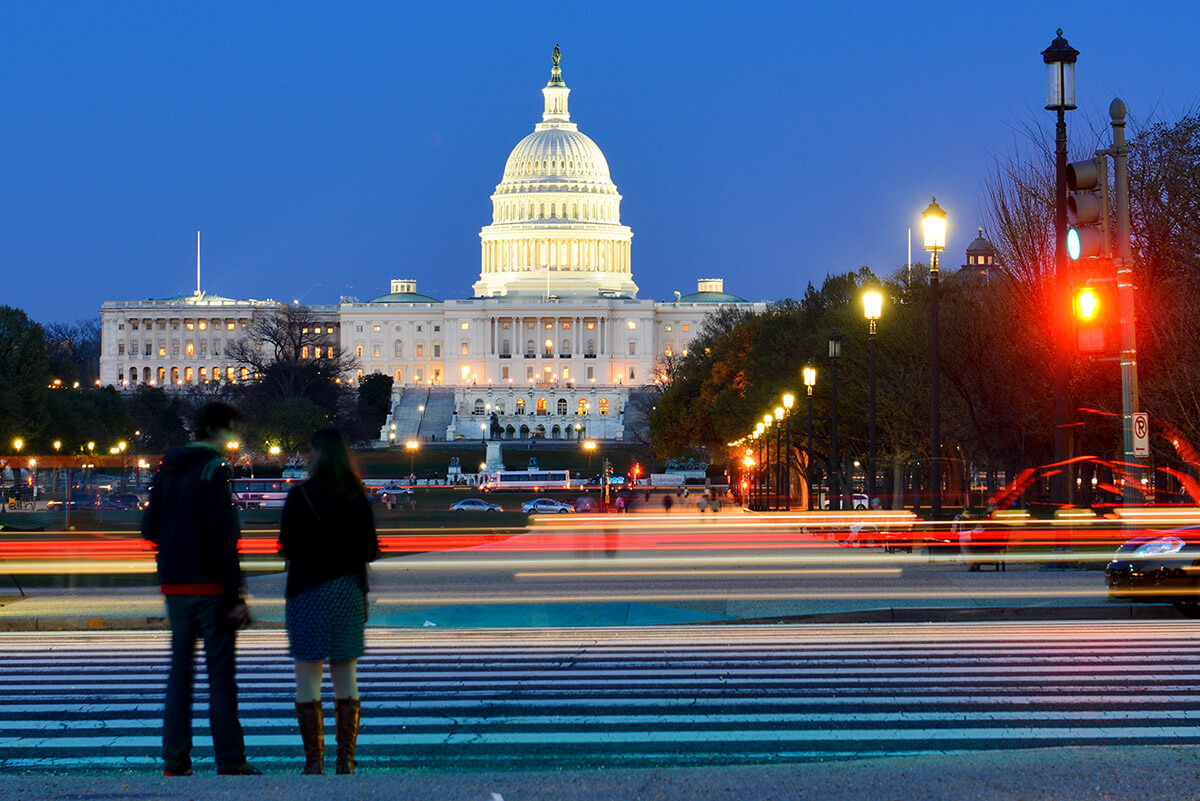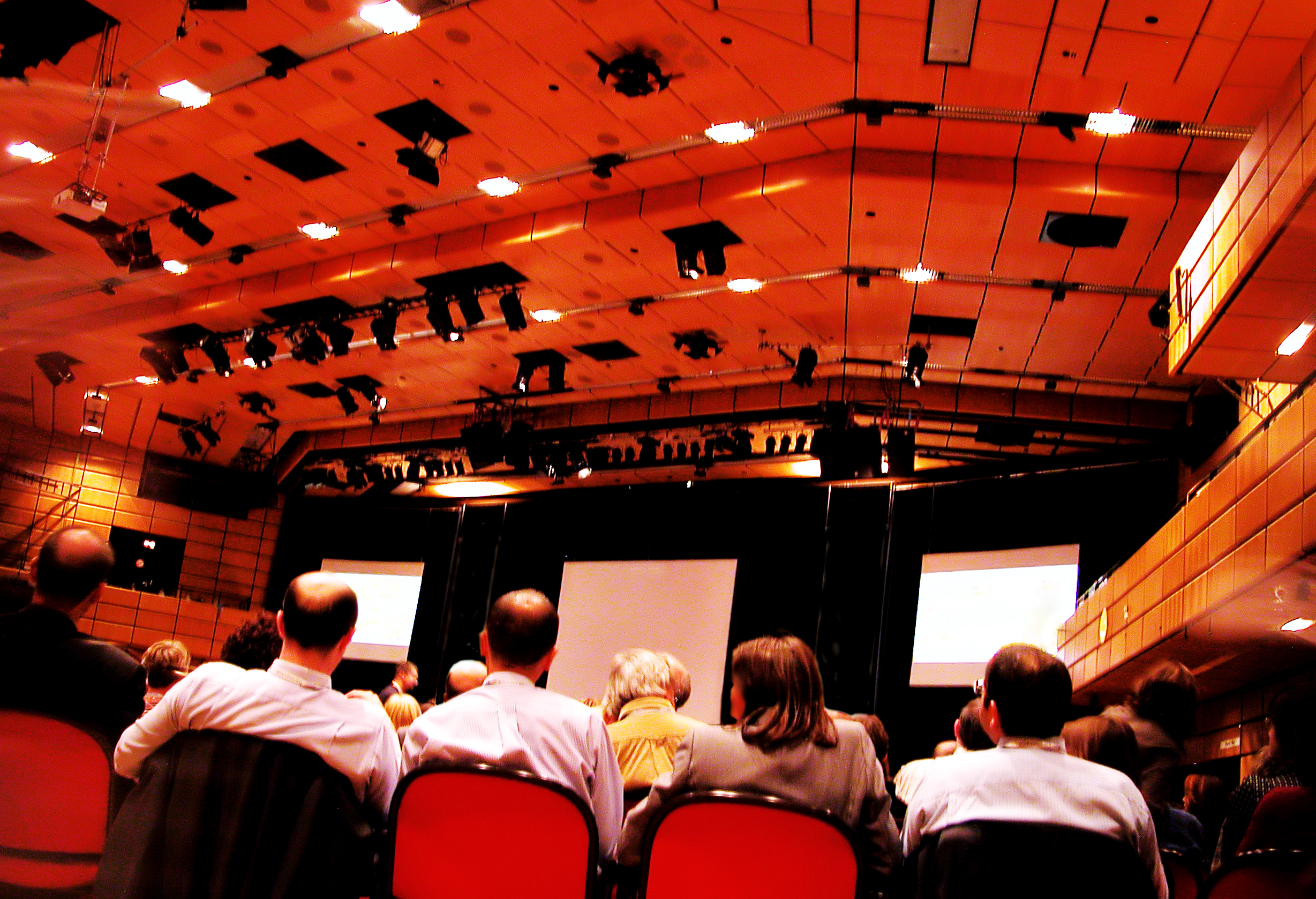I take the train a lot from Providence, R.I. to Washington, D.C. For a long time, it passes through what people would call the most beautiful scenery of the trip: the Connecticut shoreline. And for a short time, it passes through what they would call the most blighted scenery of the trip: the walls along the railroad tracks between North Philadelphia and 30th Street Station.

Katharina Grosse, psycholustro.
But I look forward to the beauty in the blight along that stretch of the trip. I’ve seen some of the most stunning artwork on those walls and buildings along the tracks, one commissioned, like contemporary German artist Katharina Grosse’s “psychylustro” — a warehouse with windows that look as though they were blown out in a blaze of orange and white – but most done by anonymous artists. Whether their frenetic art is benign or malign, I don’t care. It transforms my trip.
I work the graffiti on the walls the way people do the difficult crosswords in London’s Sunday Times. There is meaning, sometimes clear, in the words on the walls. On the walls, I read, “ZeroSmyle,” and I sympathize with the graffitist. Skrew, a loud graffitist, spray-painted a message — maybe for China — on a wall, “Drama, Tibet.”
I think about what master graffitist Banksy said in “Wall and Piece” about these artists, “Some people become vandals because they want to make the world a better looking place.”

Photo: Linda Gasparello.
One person’s defacement is another’s decoration. I’ve enjoyed grafitti on walls or buildings all over the world. Vienna has some of the most magnificent graffiti. I like to take the hydrofoil between Vienna and Bratislava, Slovakia, so that I can see the museum of temporary art along the Danube walls.
While living and traveling in the Middle East, I’ve seen graffiti galore — and one of the best writs on a trip to the Greco-Roman city of Ephesus in Turkey. Carved on a pillar near the city’s brothel – the “Love House,” as it was called by the ancients – a guide said there is some advice to lovers and other strangers: “One night with Venus, a lifetime with Mercury.” Mercury was the ancient treatment for syphilis.
The ancients were always kissing and telling on prostitutes. “Second only to the master of us all, Clodia has become the most discussed person in Rome. Versus of unbounded obscenity are scribbled about her over the walls and pavements of all the baths and urinals in Rome,” Thornton Wilder wrote in his epistolary novel “The Ides of March.”
Now, back to the future. Donald Trump’s presidency has revived the art of the protest sign and placard, not seen since the nation’s hippie days. Gitta Hasing, who I’ve known since she was a child, participated in January’s Women’s March and last week’s March for Science in Washington. She and her husband are biological scientists.
Neither wind nor rain could keep Gitta, her toddler son and her parents from marching on the Mall. She is a talented photographer and took pictures of protesters and their signs in both marches in the same exacting way she photographed parts of North and Central Florida trees for a book, published by the University of Florida.
- Photo: Gitta Hasing
- Photo: Gitta Hasing
- Photo: Gitta Hasing
If Paris is The City of Light, Washington is The City of Sayings. They are carved on government building walls, museum and monument walls, and plazas. The one that always makes me cry is part of the last verse of Walt Whitman’s Civil War-era poem “The Wound-Dresser,” carved in the granite around the Dupont South Metro entrance:
Thus in silence in dreams’ projections,
Returning, resuming, I thread my way through the hospitals,
The hurt and wounded I pacify with soothing hand,
I sit by the restless all the dark night, some are so young,
Some suffer so much, I recall the experience sweet and sad
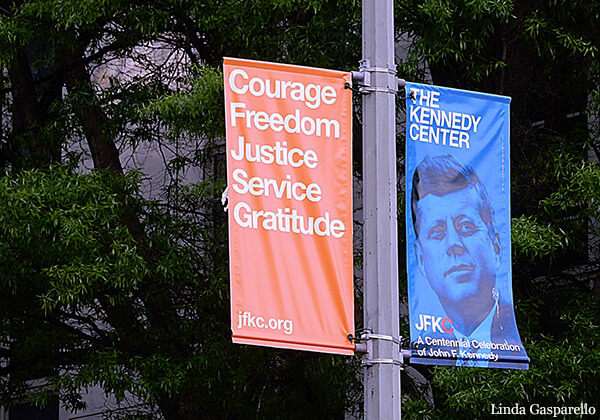
Photo: Linda Gasparello.
Two days before the March for Science, as I was sitting on a wall at the Watergate, waiting for Gita’s mother to arrive for a performance of Ballet Across America at the Kennedy Center. I looked up at two signs hanging from a street light near the Embassy of Saudi Arabia. The blue sign read “The Kennedy Center, JFKC: A Centennial Celebration of John F. Kennedy” with his picture – his 100th birthday would have been May 29, 2017. The orange one read, “Courage, Freedom, Justice, Service, Gratitude.”
Trump can’t take those words away from me. They’re carved in my memory and the memories of millions of Americans. And a sign with bold hand lettering, posted on a pillar at Cafe La France in the Providence Amtrak Station, proves that so well:
WE WELCOME
ALL Races
ALL Religions
ALL Countries of Origin
ALL Sexual Orientations
ALL Genders
We Stand With You
You Are Safe Here
